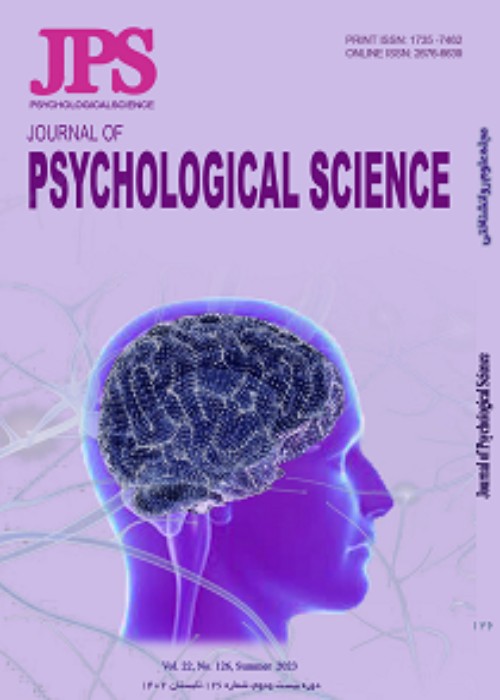Investigate the structural model of the relationship between parental psychological control and general self-efficacy with adolescents' high-risk behaviors mediated by emotional self-regulation
High-risk behaviors are considered to be one of the major threats to the health system. The tendency to take risks in teenagers is higher than in other age groups, and parental control plays an important role in preventing the occurrence of risky behaviors. The lack of emotional expression skills is an important factor in the emergence of risky behaviors. A review of the research related to high-risk behaviors shows that basic research has rarely evaluated the related variables.
To investigate the structural model of the relationship between parental psychological control and general self-efficacy with adolescents' high-risk behaviors mediated by emotional self-regulation.
The statistical population included the students in the first year of high school in Zanjan who were studying in the academic year 2021-2022. The statistical population according to Krejcie and Morgan table and using multi-stage cluster random sampling method through cyberspace due to the lack of face-to-face class of a sample of 403 students of both sexes (of which 214 in girls and 189 were in the boys' group (selected), and were virtually assigned to Adolescent Risk Questionnaires (Galone et al., 2000), March Emotional Self-Regulation (1988), Dependent Psychological Control, and Parental Developmental Progress by Sonnens et al. (2010). and General self-efficacy Scherer et al. (1982) responded. The statistical method of structural equation modeling (SEM) was used to analyze the data.
The results showed that direct effect of parental psychological control on emotional self-regulation (β= -0.28, p< 0.01) and high-risk behaviors (β= 0.02, p< 0.01) was significant. Was. The direct effect of self-efficacy on emotional self-regulation (β= 0.01, p< 0.01) and high-risk behaviors (β= -0.24, p< 0.01) was significant. Also, the relationship between parental psychological control and self-efficacy with high-risk behavior through emotional self-regulation was significant.
Family support and control play an important role in preventing the tendency to risky behaviors. Equipping students with individual skills such as self-efficacy in management and emotional self-regulation can also be effective in preventing high-risk behaviors.
- حق عضویت دریافتی صرف حمایت از نشریات عضو و نگهداری، تکمیل و توسعه مگیران میشود.
- پرداخت حق اشتراک و دانلود مقالات اجازه بازنشر آن در سایر رسانههای چاپی و دیجیتال را به کاربر نمیدهد.


